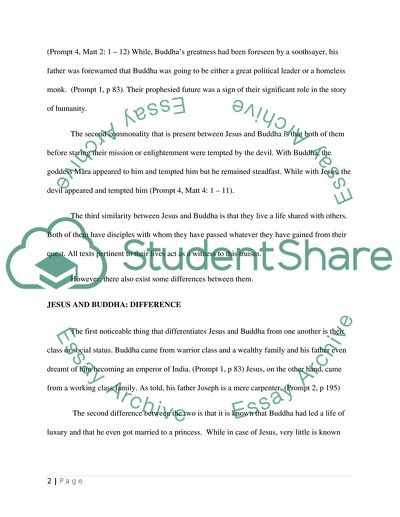Cite this document
(Similarities and Differences between Jesus and Buddha Admission/Application Essay, n.d.)
Similarities and Differences between Jesus and Buddha Admission/Application Essay. Retrieved from https://studentshare.org/religion-and-theology/1728021-compare-and-constrast-jesus-christ-and-buddha
Similarities and Differences between Jesus and Buddha Admission/Application Essay. Retrieved from https://studentshare.org/religion-and-theology/1728021-compare-and-constrast-jesus-christ-and-buddha
(Similarities and Differences Between Jesus and Buddha Admission/Application Essay)
Similarities and Differences Between Jesus and Buddha Admission/Application Essay. https://studentshare.org/religion-and-theology/1728021-compare-and-constrast-jesus-christ-and-buddha.
Similarities and Differences Between Jesus and Buddha Admission/Application Essay. https://studentshare.org/religion-and-theology/1728021-compare-and-constrast-jesus-christ-and-buddha.
“Similarities and Differences Between Jesus and Buddha Admission/Application Essay”, n.d. https://studentshare.org/religion-and-theology/1728021-compare-and-constrast-jesus-christ-and-buddha.


